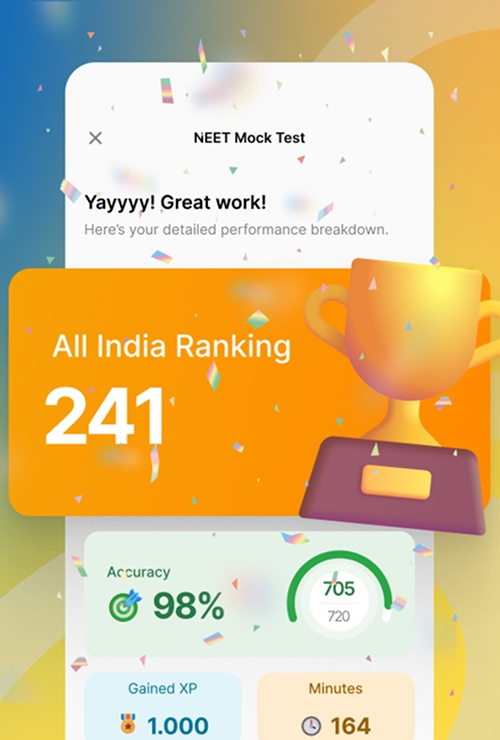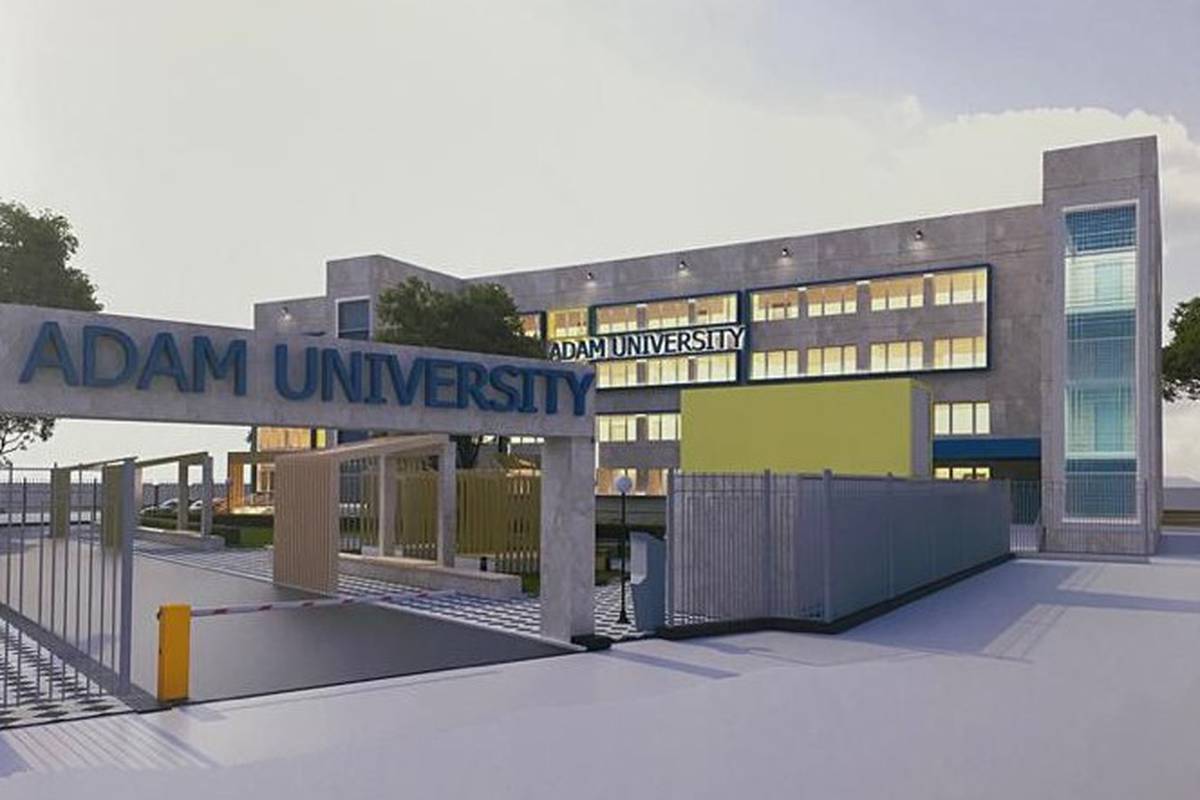
☝️ At a glance
- The Medical Counselling Committee (MCC) manages the centralized counselling process for NEET UG, handling admissions to MBBS and BDS programs through All India Quota (AIQ) and state quota seats.
- NEET UG, conducted by the National Testing Agency (NTA), is the primary qualification exam for medical admissions in India.
- The MCC counselling process includes multiple rounds such as round 1, round 2, mop-up round, and the stray vacancy round, with candidates required to register online, fill preferences, and report to the allotted colleges.
- NEET UG eligibility requires candidates to pass 10+2 with core subjects like Physics, Chemistry, and Biology, and meet the minimum qualifying marks based on their category.
- Candidates must submit key documents for verification during counselling, including their NEET UG admit card, rank card, category certificates, and other relevant documents.
The Medical Counselling Committee (MCC) is an essential regulatory body under the Directorate General of Health Services (DGHS), functioning within the Ministry of Health and Family Welfare, Government of India. It was established to ensure a centralized and transparent counselling process for admissions into medical and dental coursesacross India. MCC primarily manages the 15% All India Quota (AIQ) seats for MBBS and BDS programs in government medical colleges, 50% AIQ seats for postgraduate (PG) medical courses, and 100% seats for Super Specialty courses (DM/MCh).
The MCC came into prominence following landmark judgments by the Hon’ble Supreme Court of India that mandated a unified counselling process to ensure fairness and merit-based admissions. Over the years, MCC has played a pivotal role in streamlining the admission process through online platforms, minimizing biases, and maintaining transparency.
Additionally, MCC oversees the counselling process for deemed universities, AIIMS, JIPMER, AMU, BHU, and ESICinstitutions. With a focus on fairness and merit, MCC also handles cases related to counselling disputes, fee structures, seat allocations, and category-based reservations.
Key features of MCC include its online registration portal (mcc.nic.in), choice-filling system, and automated seat allotment process. Candidates are required to register, pay fees, and participate in multiple rounds of counselling, including the Stray Vacancy Round for leftover seats.
With its user-friendly online interface, MCC has made counselling accessible to all students nationwide. It also aligns with the Ministry of Education’s Digital India Mission, emphasizing transparency, accountability, and ease of access for medical aspirants.
For candidates preparing for NEET UG, understanding MCC’s guidelines is crucial to securing a seat in top medical institutions in India.


What is NEET UG?
The National Eligibility cum Entrance Test for Undergraduate Courses (NEET UG) is India’s largest medical entrance examination, conducted annually by the National Testing Agency (NTA). It serves as the single-window examination for admissions to MBBS, BDS, AYUSH, and veterinary courses across government and private colleges in India. NEET UG has replaced multiple state and institutional entrance exams, ensuring a uniform admission standard nationwide.
NEET UG is conducted in pen-and-paper mode, covering subjects such as Physics, Chemistry, and Biology (Botany and Zoology). The examination follows a 3-hour 20-minute duration, testing candidates on a total of 200 questions, out of which 180 must be attempted. The maximum marks are 720, with a marking scheme of +4 for correct answers and -1 for incorrect answers.
This exam is highly competitive, with over 20 lakh students appearing each year. It serves as the qualifying test for not just medical colleges in India but also abroad, as mandated by the Medical Council of India (MCI), now National Medical Commission(NMC).
NEET UG overview
Exam Name | NEET UG |
|---|---|
Conducting Body | National Testing Agency (NTA) |
Examination Mode | Offline (Pen-and-Paper) |
Eligibility | 10+2 Passed with PCB Stream |
Minimum Qualifying Marks | 50% (General), 40% (SC/ST/OBC) |
Total Marks | 720 |
Subjects Covered | Physics, Chemistry, Biology |
Negative Marking | -1 for wrong answers |
Official Website |
NEET UG follows strict rules to ensure a fair and unbiased evaluation of merit. With the introduction of digital OMR sheets and barcode tracking, the exam upholds high standards of integrity.
The results of NEET UG determine eligibility for MCC counselling, which allocates seats based on merit, choice preferences, and reservation norms.
Click here to download the NEET 2026 official syllabus.
Download PDFEligibility criteria for NEET UG
Candidates aspiring to appear for NEET UG must satisfy the eligibility criteria set by the National Testing Agency (NTA). These criteria ensure fairness in admissions and adherence to national academic standards.
Age criteria
Minimum age: Candidates must have completed 17 years as of December 31, of that year.
Maximum age: There is no upper age limit as per the latest regulations, although it was previously 25 years(relaxation of 5 years for SC/ST/OBC).
Educational qualification
Candidates must have:
Passed 10+2 or equivalent examinations with Physics, Chemistry, Biology/Biotechnology, and English as core subjects.
Achieved the minimum qualifying marks in board exams:
Category | Minimum Marks Required (%) |
|---|---|
General | 50% |
SC/ST/OBC | 40% |
PwD (General) | 45% |
Students appearing for Class 12 exams can also apply provisionally, provided they submit qualifying marks during counselling.
NEET qualifying percentile
Candidates must meet the required cutoff percentile to qualify for counselling:
Category | Percentile | Marks Range (2023) |
|---|---|---|
General | 50th | 715-117 |
SC/ST/OBC | 40th | 116-93 |
PwD (General) | 45th | 116-105 |
Attempts and nationality
Nationality: Indian citizens, Overseas Citizens of India (OCI), and Foreign nationals are eligible.
Attempts: There is no limit on the number of attempts for NEET UG.
The eligibility criteria are strictly enforced, and students are required to upload valid certificates and documents during the registration process.
Important judgments shaping MCC policies
MCC’s policies and counselling framework have been shaped by Supreme Court judgments and government ordersover the years. These legal precedents ensure fairness, transparency, and inclusivity in medical admissions.
Key judgments
Dr. Dinesh Kumar vs. Motilal Nehru Medical College (1985):
Introduced the 15% All India Quota (AIQ) for MBBS/BDS and 25% for PG courses to standardize admissions based on merit.Sharawan Kumar vs. DGHS (1992):
Approved the MCC scheme for AIQ counselling, reinforcing merit-based seat allocation.Anand S. Biji vs. State of Kerala (2012):
Mandated online counselling for PG courses to streamline admissions and minimize biases.Dar-Us-Slam Trust vs. MCI (2017):
Unified government and deemed universities under common counselling, ensuring equitable access to AIQ seats.Reservation update (2021):
Introduced 27% OBC and 10% EWS reservations in AIQ seats, promoting inclusivity.
Impact of judgments
These rulings ensured that all counselling procedures are conducted online, reducing human intervention and errors. They also laid the foundation for introducing reservation policies, handling stray vacancies, and streamlining the registration process.
By centralizing medical admissions, MCC has established itself as the most reliable authority for counselling services, ensuring compliance with court orders and government regulations.
Click here to download the NEET Physics chapter-wise weightage
Download PDFMCC NEET UG counselling process

The NEET UG counselling process is conducted in multiple rounds to ensure fair and transparent allocation of seats based on merit. Candidates who qualify in NEET UG and meet the eligibility criteria can participate in counselling for All India Quota (AIQ) seats, deemed universities, central universities, and other institutions.
Step-by-step counselling process:
Registration:
Visit the MCC official website (mcc.nic.in) and click on the UG Medical Counselling link.
Complete registration by filling in personal and academic details.
Pay the registration fee and security deposit based on the category and institution.
Choice filling and locking:
Select preferred colleges and courses in order of preference.
Lock choices before the deadline to finalize preferences.
Seat allotment:
MCC processes seat allotment based on merit rank, category, and preferences submitted by candidates.
Results are declared online, and candidates can download their allotment letter.
Reporting to the allotted college:
Candidates must report to the allotted college within the stipulated time with the required documents for verification.
Upgradation and resignation:
Candidates dissatisfied with their allotment can upgrade to a better-preferred seat in the subsequent rounds.
Those who wish to withdraw can resign before the next round.
Rounds of counselling:
Counselling Round | Purpose |
|---|---|
Round 1 | Initial seat allocation based on choices. |
Round 2 | Vacant seat filling and upgradation. |
Mop-Up round | Filling leftover seats after Round 2. |
Stray vacancy round | Allocation of unfilled seats at the college level. |
The MCC counselling process is time-bound and requires candidates to stay updated with schedules and announcements to secure their admissions.
Types of MCC counselling
MCC organizes counselling for different categories of medical and dental seats to ensure inclusivity and equitable distribution.
UG counselling:
15% All India Quota (AIQ):
Available for all government MBBS/BDS colleges across India, excluding Jammu & Kashmir.
100% seats in central institutions:
AIIMS, JIPMER, AMU, and BHU fall under this category.
Deemed universities:
Includes private universities offering MBBS and BDS programs.
ESIC medical colleges:
15% seats reserved for IP quota candidates in ESIC-affiliated institutions.
Jamia Millia Islamia (JMI):
Includes 5% internal quotas for Jamia students in the Faculty of Dentistry.
PG counselling:
50% AIQ for MD/MS/Diploma Courses:
Open for admissions in government medical colleges.
Deemed and central universities:
Covers institutions like BHU, AMU, and DU.
ESIC and armed forces medical services:
Admissions for ESIC wards and Armed Forces candidates.
Super specialty counselling:
Conducted for DM/MCh courses covering 100% seats in contributing states and private colleges.
Excludes Institutes of National Importance (INI) such as AIIMS.
This classification allows candidates to identify the most suitable category based on eligibility and reservation criteria.
MCC seat allotment and reservation policy
The MCC seat allotment process is based on the candidate’s NEET UG rank, choices filled, and reservation policiesas mandated by the Government of India.
Reservation categories and percentage:
Category | Reservation Percentage (%) |
|---|---|
Scheduled Castes (SC) | 15% |
Scheduled Tribes (ST) | 7.5% |
Other Backward Classes (OBC-NCL) | 27% |
Economically Weaker Sections (EWS) | 10% |
Persons with Disabilities (PwD) | 5% |
Seat distribution across institutions:
Institution Type | AIQ Percentage (%) |
|---|---|
Government Medical Colleges | 15% |
AIIMS (All Campuses) | 100% |
JIPMER (Puducherry/Karaikal) | 100% |
Deemed Universities | 100% |
Central Universities | 100% |
Category certificates:
Candidates applying under reserved categories must upload valid certificates during registration. Incorrect or invalid documents may lead to disqualification.
PWD reservation:
Candidates must submit a disability certificate issued by authorized medical boards.
A 5% horizontal reservation applies across all categories.
The reservation policy ensures access to education for underprivileged and marginalized groups, promoting diversity and inclusivity in medical education.
Documents required for NEET UG counselling
Candidates participating in MCC counselling must furnish the following documents for verification during reporting:
NEET UG admit card: Original and photocopy.
NEET UG rank card: Printout of results from the NTA website.
Provisional allotment letter: Downloaded from MCC’s portal.
Class 10 certificate and marksheet: Proof of Date of Birth.
Class 12 certificate and marksheet: Proof of qualification and eligibility.
Category certificate (if applicable):
SC/ST/OBC-NCL/EWS certificate as per government format.
PwD certificate (if applicable): Issued by an authorized medical board.
Identity proof: Aadhar Card, PAN Card, or Passport.
Passport-sized photographs: Recent (8-10 copies).
Migration certificate: Required for central and deemed universities.
Character certificate: Issued by the last attended institution.
Proof of fees payment: Receipt for counselling and security deposit.
Important notes:
Candidates must carry original documents along with two sets of photocopies.
Foreign nationals and NRIs should submit valid passport copies and OCI cards.
Failure to produce documents may lead to cancellation of admission.
By organizing documentation beforehand, candidates can avoid last-minute issues during verification.
Conclusion
The MCC NEET UG counselling process is a pivotal step for aspirants seeking admission to MBBS and BDS programs through All India Quota (AIQ) and state quota seats. Managed by the Medical Counselling Committee (MCC) under the Ministry of Health and Family Welfare, it ensures fairness and transparency in UG counselling through an online system for choice filling, round 1, round 2, and the Stray Vacancy Round.
Candidates must stay updated with announcements from the Directorate General of Health Services to meet deadlines for registration, choice locking, and reporting for allotted seats. Adherence to reservation policies, submission of accurate documents, and awareness of the process outlined by the Government of India are crucial for success.
For aspirants looking to excel in NEET UG and secure admissions in central universities and AIQ seats, NEETsheet by futureMBBS offers expert guidance, live classes, and resources from India’s best edtech teachers. Whether it’s counselling or preparation strategies, futureMBBS equips students to succeed in their medical careers. Book a free counselling session with us for the latest updates and preparation tips!
Click here to download the NEET Chemistry chapter-wise weightage
Download PDFFREQUENTLY ASKED QUESTIONS
FAQs about "MCC NEET UG"
What is MCC NEET UG counselling?
The NEET UG counselling is a centralized process managed by the Medical Counselling Committee (MCC) for admissions to MBBS and BDS programs through All India Quota (AIQ) and state quota seats. The counselling process includes choice filling, choice locking, and seat allotment for All India Quota seats, with multiple rounds, including the Stray Vacancy Round for unfilled seats.
Who conducts the NEET UG exam?
The NEET UG exam is conducted by the National Testing Agency (NTA) under the guidelines of the Ministry of Health and Family Welfare, Government of India. It serves as the qualifying exam for admission to MBBS, BDS, and other medical courses.
What are the eligibility criteria for NEET UG?
Candidates must have passed 10+2 with Physics, Chemistry, and Biology/Biotechnology as core subjects. For general category students, the minimum qualifying marks are 50%, while SC/ST/OBC candidates need 40%. Candidates must meet the NEET UG cutoff to qualify for MCC counselling.
What documents are required for MCC counselling?
Candidates participating in NEET UG counselling must submit documents such as NEET UG admit card, rank card, class 10 and 12 certificates, category certificates, identity proof, and passport-sized photographs to MCC for verification during reporting to the allotted college.
How can NEETsheet by futureMBBS help in NEET preparation?
NEETsheet by futureMBBS offers comprehensive support for NEET UG preparation, including live classes, expert resources, and personalized guidance from India's top edtech teachers. With a focus on MCC NEET UG counselling, NEETsheet equips students to excel in the UG counselling process, helping them secure a seat in All India Quota or state quota seats.




